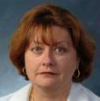 Conference Speakers
Conference Speakers
Cultural Speakers
Cultural practices, beliefs, and norms play a very important role not only in delivering health care to clients and patients, but also in how that health care is received and what outcomes are possible. Diversity within those beliefs and practices, and as a result of available resources or social economic/demographic circumstances, must be fully understood in order for health care professionals to provide the best care possible no matter where they are in the world, or what culture they are practicing within.
At GOLD Perinatal Care, we understand the importance of Culture and Diversity in health care, and we are working hard to bring you speakers and presentations from around the world that will help you understand the patients and clients you are working with. Discovering how health care is provided and received in other countries and cultures around the world can have a positive impact on our own professional practice. Given that culture is defined by much more than political borders, GOLD Perinatal Care invites speakers to share their knowledge and expertise about perinatal health care from a geographically-based focus or a people-group focus from within a particular set of beliefs, lifestyle or minority. This year, our Culture and Diversity speakers will be presenting on:
 Dr. Speakers Full Name
Speaker Credentials
Dr. Speakers Full Name
Speaker Credentials

Annet Mulder first became interested in breastfeeding in the year 2000, when she became a mother for the first time. During and because of her own breastfeeding experiences, in 2002 she became a volunteer with the Dutch breastfeeding Organization and in 2008 sat for and passed the exam administered by the International Board of Lactation Consultant Examiners. As an International Board Certified Lactation Consultant, she now
Annet Mulder first became interested in breastfeeding in the year 2000, when she became a mother for the first time. During and because of her own breastfeeding experiences, in 2002 she became a volunteer with the Dutch breastfeeding Organization text text text text more name mulder first became interested in breastfeeding in the year 2000, when she became.
 Dr. Speakers Full Name
Speaker Credentials
Dr. Speakers Full Name
Speaker Credentials





